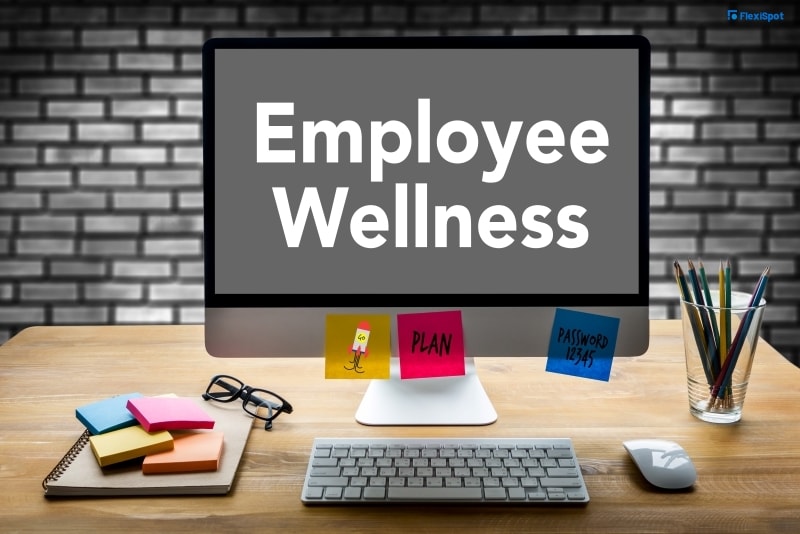If you want to lead a long and meaningful life, it's critical to maintain your health.
However, the majority of people are urged or seduced into engaging in vices by the social groups they are with. Smoking is one such bad habit. Many people continue to smoke or struggle to stop due to addiction, despite the fact that tobacco is a prevalent cause of deadly illnesses. Many claims that it relieves their tension, therefore, for instance, workers in offices utilize their breaks at work to smoke cigarettes.
But not everyone is aware that smoking has a negative impact on one's productivity. Here are some explanations for how it really will impact your workplace productivity:
Smoking worsens anxiety and impairs focus.
Smoking, per Indus Health, can increase anxiety levels, causing you to lose concentration on the things you should be working on.

Nonsmokers are exposed to the risks of smoking.
You will expose a loved one to secondhand smoke if you smoke and are always around them. Despite the fact that they do not themselves smoke, this has a direct influence on their health as well.
The more smokers at work, the more cleaning expenses there will be.
An office with a lot of smokers will require extra effort to keep it clean.
Smokers are more likely to have accidents, get hurt, or become sick.
Smokers are more likely to contract illnesses and miss work due to illness because smoking has a negative impact on one's health.

You’ll take longer and more frequent breaks.
You will occasionally crave smoking if you have a smoking addiction. This implies that you will be less productive and frequently take smoke breaks outside.
The culture of the workplace could be destroyed as a result of smoking.
Smoking can create a smoking/nonsmoking divide in an office. When a coworker and their superior smoke together and discuss project ideas while taking smoke breaks, this can create cliques and occasionally even favoritism.
Due to poor health, smokers are more inclined to retire early.
Smokers have a higher risk of developing a fatal illness because smoking is hazardous to their health, which could result in early retirement.
This means that employers will be responsible for covering the indirect extra cost brought on by smoking.
How Smoking Affects an Employees' Health

Smoking has been linked to coronary heart disease and stroke.
Chain smokers may develop a cardiac condition over time.
Smoking might start an asthma attack or make it worse.
Smoking can irritate the airways, resulting in swelling, narrowing, and mucus buildup. Attacks or a flare-up of asthma may result from this.
Smoking may cause damage to blood vessels.
The chemicals in cigarette smoke are what causes blood vessels to expand and become inflamed. As a result, cardiovascular disease may develop and the blood arteries may get narrowed.
Erectile dysfunction in men can be brought on by smoking. Fertility in women may be affected. Smoking during pregnancy can result in disabled children.
Few people are aware of how smoking affects fertility. Smoking when trying to conceive or while pregnant may have an adverse effect on fertility.

Lung cancer is a result of smoking.
The CDC estimates that smoking cigarettes are responsible for 80–90% of lung cancer-related deaths in the US. It is without a doubt the main reason why people have terminal illnesses.
One of the causes of Type 2 diabetes is smoking.
The likelihood of getting diabetes as an adult increases with daily smoking. Diabetes is less likely to strike nonsmokers.
Smoking can cause memory loss, ineffective planning, mental decline, and in rare cases, dementia.
Smokers have a 40% increased risk of developing Alzheimer's disease and a 30% increased risk of dementia, according to Alzheimer's Research UK.

Ways to Stop Smoking
Again, smoking has the ability to harm your loved ones' health as well. Once you become dependent on and committed to a habit, it might be difficult to break, but that doesn't mean you can't. After years of addiction, deciding to stop smoking was a conscious decision. Here are some actions you could take to give up this bad habit:
Set a date for quitting on the calendar.
Take it gradually. Perhaps you could reduce the quantity of smoke you consume each day. Alternatively, reduce the number of days each week that you smoke. It's crucial to set a deadline for quitting smoking.
Inform them of your intention to quit.
Spread the word and inform your loved ones, friends, and coworkers that you are deciding to give up smoking for good in order to improve your health. They might serve as your go-to person for support while you try to quit smoking and navigate this challenging change. To make it simpler for you to keep your word, request them to be tough with you and refrain from inviting you on work breaks.
Consult your doctor for advice on how to stop smoking.
To assist you to cope with withdrawal symptoms, your doctor may write you a prescription. Additionally, there are over-the-counter medications that can support your complete smoking cessation. These consist of nicotine patches, gum, and lozenges.
Prepare for the problems you'll face once you give up smoking.
After three months, the majority of people resume smoking. If you don't want this to occur, make plans and have a remedy ready for any problems you may run into.
At home, throw away all cigarette products.
Make it so that you can't get cigarettes. To avoid temptation, dispose of all the matches, ashtrays, lighters, and cigarettes. In order to avoid being tempted to take a puff, you should also wash your car seats, bed sheets, clothes, furniture fabric, and anything else that smells like smoke.

Program for Employee Health
Attend a smoking cessation program they offer at work to support you on your journey to quitting. The health plans that your employer provides for its employees are always open to you.
Businesses that appreciate their employees' well-being make investments in ergonomic furniture, provide health insurance policies, host health lectures, and create enjoyable workout events. The employee ultimately gets the final decision on how he or she will care for his or her health.
